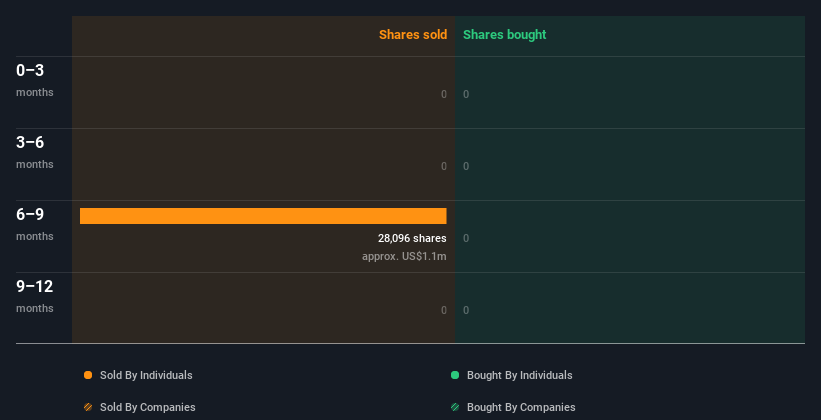One Citigroup Insider Has Reduced Their Stake
From what we can see, insiders were net sellers in Citigroup Inc.'s (NYSE:C ) during the past 12 months. That is, insiders sold the stock in greater numbers than they purchased it.
Although we don't think shareholders should simply follow insider transactions, logic dictates you should pay some attention to whether insiders are buying or selling shares.
See our latest analysis for Citigroup
Citigroup Insider Transactions Over The Last Year
The Head of Markets, Andrew Morton, made the biggest insider sale in the last 12 months. That single transaction was for US$1.1m worth of shares at a price of US$40.66 each. That means that an insider was selling shares at slightly below the current price (US$61.25). When an insider sells below the current price, it suggests that they considered that lower price to be fair. That makes us wonder what they think of the (higher) recent valuation. While insider selling is not a positive sign, we can't be sure if it does mean insiders think the shares are fully valued, so it's only a weak sign. We note that the biggest single sale was only 6.4% of Andrew Morton's holding. Andrew Morton was the only individual insider to sell shares in the last twelve months.
You can see a visual depiction of insider transactions (by companies and individuals) over the last 12 months, below. If you click on the chart, you can see all the individual transactions, including the share price, individual, and the date!
For those who like to find hidden gems this free list of small cap companies with recent insider purchasing, could be just the ticket.
Insider Ownership
I like to look at how many shares insiders own in a company, to help inform my view of how aligned they are with insiders. We usually like to see fairly high levels of insider ownership. Citigroup insiders own about US$242m worth of shares (which is 0.2% of the company). Most shareholders would be happy to see this sort of insider ownership, since it suggests that management incentives are well aligned with other shareholders.
What Might The Insider Transactions At Citigroup Tell Us?
The fact that there have been no Citigroup insider transactions recently certainly doesn't bother us. It's great to see high levels of insider ownership, but looking back over the last year, we don't gain confidence from the Citigroup insiders selling. While it's good to be aware of what's going on with the insider's ownership and transactions, we make sure to also consider what risks are facing a stock before making any investment decision. At Simply Wall St, we found 1 warning sign for Citigroup that deserve your attention before buying any shares.
Of course, you might find a fantastic investment by looking elsewhere. So take a peek at this free list of interesting companies.
For the purposes of this article, insiders are those individuals who report their transactions to the relevant regulatory body. We currently account for open market transactions and private dispositions of direct interests only, but not derivative transactions or indirect interests.
Have feedback on this article? Concerned about the content? Get in touch with us directly. Alternatively, email editorial-team (at) simplywallst.com.
This article by Simply Wall St is general in nature. We provide commentary based on historical data and analyst forecasts only using an unbiased methodology and our articles are not intended to be financial advice. It does not constitute a recommendation to buy or sell any stock, and does not take account of your objectives, or your financial situation. We aim to bring you long-term focused analysis driven by fundamental data. Note that our analysis may not factor in the latest price-sensitive company announcements or qualitative material. Simply Wall St has no position in any stocks mentioned.
Have feedback on this article? Concerned about the content? Get in touch with us directly. Alternatively, email editorial-team@simplywallst.com

 Yahoo Finance
Yahoo Finance 
